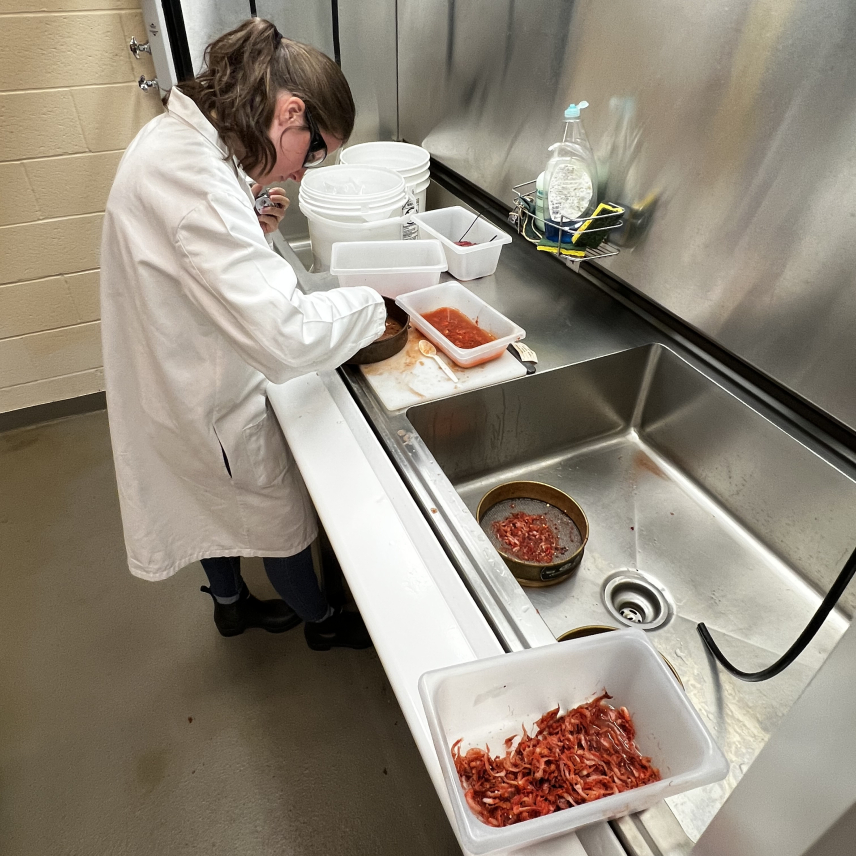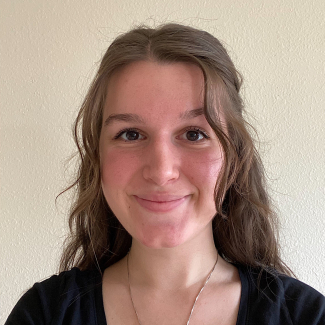Hi everyone, I'm Sarah Hensley! This summer I got the incredible opportunity to complete the internship portion of my Ernest F. Hollings Undergraduate Scholarship. I worked with an amazing group of scientists at the Southwest Fisheries Science Center in the Cetacean Health and Life History Program in La Jolla, California. My project was largely based around learning how the diet of common dolphins (Delphinus spp) has been changing over time, as well as how it has been influenced by sea surface temperature.
Sarah Hensley, a 2022 Hollings scholar was part of the Marine Mammal Stranding Team based out of the Southwest Fisheries Science Center during her summer internship. Here, she is riding in the back of a lifeguard truck to collect a dead stranded common dolphin in Imperial Beach, California. Photo taken under NMFS Permit No. 24359. (Image credit: Ricarda Hill)






